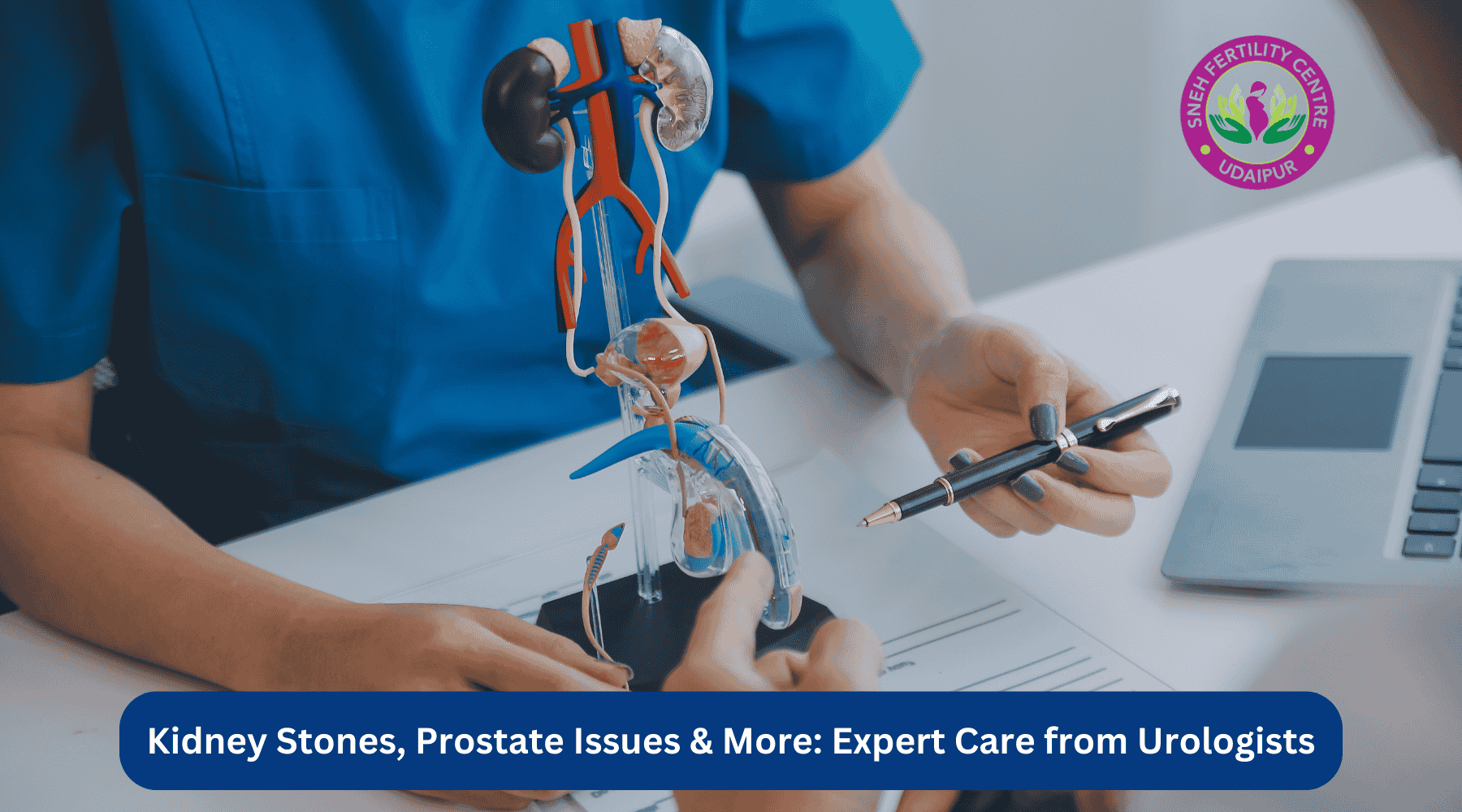Many people ignore urinary and reproductive health problems until they become painful or severe. But kidney stones, bladder issues, or prostate problems can affect daily life and, if left untreated, may lead to serious complications. Consulting a urologist specialist in Udaipur at the right time can prevent these conditions from becoming more serious.
A urologist is a specialist who treats diseases of the urinary system and male reproductive organs. From minor infections to complex surgeries, urologists provide care that helps patients maintain a healthy lifestyle.
In this blog, we’ll cover common urology problems, their symptoms, treatments, and why timely consultation is important.
What Does a Urologist Do?
Urologists treat conditions affecting the:
- Kidneys
- Bladder
- Prostate
- Ureters and urethra
- Testes and male reproductive system
They manage both medical and surgical cases, including kidney stones, urinary tract infections (UTIs), prostate enlargement, infertility, and more.
Common Urology Problems
1. Kidney Stones
Kidney stones are hard mineral deposits formed in the kidneys. They can cause severe pain and urinary issues.
Symptoms include:
- Severe back, side, or lower abdomen pain
- Blood in urine (hematuria)
- Nausea or vomiting
- Frequent urination or burning sensation
Treatment options:
- Hydration and dietary changes – Drinking more water and reducing salt intake can help small stones pass naturally.
- Medication – Pain relievers and medicines to relax ureter muscles.
- Shock Wave Lithotripsy (SWL) – Uses sound waves to break stones into smaller pieces.
- Surgery – For large or obstructive stones that cannot pass naturally.
2. Prostate Problems
Prostate issues are common in men, especially after age 50. Common conditions include:
- Benign Prostatic Hyperplasia (BPH) – Enlargement of the prostate causing difficulty urinating.
- Prostatitis – Swelling or infection of the prostate causing pain and discomfort.
- Prostate Cancer – A serious condition requiring early detection and treatment.
Diagnosis and treatment:
- Blood tests (PSA levels) and ultrasounds
- Medications to reduce swelling or improve urine flow
- Minimally invasive surgeries or laser treatments for severe cases
Common Urology Problems
3. Urinary Tract Infections (UTIs)
UTIs occur when bacteria infect the urinary system. Though more common in women, men can also develop UTIs.
Symptoms include:
- Burning sensation during urination
- Frequent urge to urinate
- Cloudy or foul-smelling urine
Treatment:
- Antibiotics to eliminate infection
- Lifestyle tips to prevent recurrence, such as proper hydration and hygiene
4. Bladder Problems
- Overactive bladder – Frequent, sudden urge to urinate
- Urine leakage or incontinence – Loss of bladder control
- Interstitial cystitis – Chronic bladder pain
Treatment:
- Medications to improve bladder control
- Lifestyle adjustments like timed voiding and fluid management
- Minimally invasive procedures or surgery for severe cases
Modern Treatments and Technology
Urologists today use advanced tools and techniques for faster, safer, and more effective treatment:
- Laser treatment – For kidney stones, enlarged prostate, or tumors
- Endoscopy – Minimally invasive procedures using cameras for diagnosis and surgery
- Keyhole surgery – Reduces recovery time and surgical risks
These technologies help patients return to normal life quickly with minimal pain.
When Should You Visit a Urologist?
Seek medical care if you experience:
- Severe pain in the lower abdomen, back, or sides
- Blood in urine
- Difficulty or pain while urinating
- Recurrent urinary infections
- Bladder leakage or poor control
- Fertility issues in men
Ignoring these symptoms can worsen the condition and increase health risks. Early intervention ensures better outcomes.
FAQs About Urology Health
1. Are kidney stones preventable?
2. Does an enlarged prostate always require surgery?
3. Can UTIs cause kidney damage?
4. Is bladder leakage normal with age?
5. How do urologists treat male infertility?
Urologist in Udaipur: Expert Care at Sneh Healthcare
If you’re in Udaipur or nearby areas, expert urologists at Sneh Fertility Centre provide:
- Diagnosis and treatment for kidney stones, bladder, and prostate issues
- Male fertility evaluation and treatments
- Advanced minimally invasive procedures and laser therapies
- Personalized care and lifestyle guidance
Early intervention improves recovery, reduces complications, and enhances overall quality of life.
Urology health is vital for overall well-being, yet often ignored until pain or complications arise. Conditions like kidney stones, prostate enlargement, UTIs, and bladder problems can impact daily life, but timely care can prevent serious outcomes.
Visiting a urologist early ensures proper diagnosis, treatment, and peace of mind.
Book your consultation with Sneh Healthcare Centre, Udaipur, today for expert urology care and advanced treatment options.






